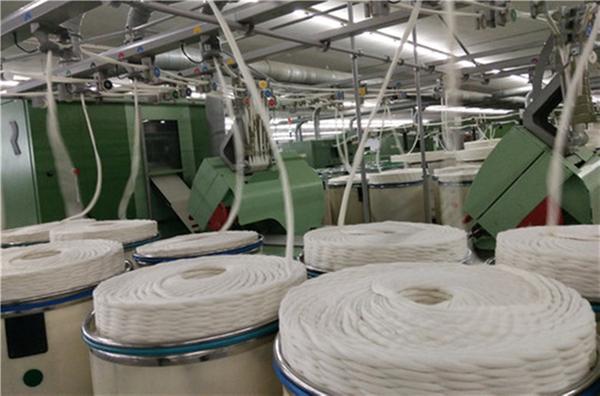Industrial policy will become smarter
By HU YONGQI | China Daily | Updated: 2017-05-18 05:27
 |
| White cottons are processed automatically in the "smart" factory of the Wuxi No 1 Cotton Mill. [Photo by Miao Jiayu/chinadaily.com.cn] |
The decision was made at a State Council executive meeting presided over by Premier Li Keqiang on Wednesday, when a report on the strategy's implementation was delivered to participants.
Since implementing the strategy in 2015, the nation has seen a steady progress in industrial capabilities, smart manufacturing, innovation, and product quality and branding. A recent example is the passenger jet C919, which made its first test flight earlier this month.
The meeting decided to focus on smart manufacturing and further deploy new technologies such as the industrial internet to make manufacturing a smarter and greener sector offering better services and products.
Average productivity was up by 38 percent for China's first 109 pilot projects in smart manufacturing, while operating costs dropped by 21 percent, according to the Ministry of Industry and Information Technology.
The premier said Made in China 2025, as a crucial part of supply-side structural reform, is vital to moving the country's economy up the value chain. The key is exploiting advantages of China's domestic market and human resources, as well as further promotion of basic research and innovation, he said.
"Implementation of the strategy has introduced strength to the real economy, especially equipment manufacturing. However, we should also remain aware of our weak links since much of the industry is at the middle and lower end of global supply," Li said.
Made in China 2025 was first unveiled in his Government Work Report in March 2015. Two months later, the State Council released a guideline that focused on five key projects, including smart manufacturing, and 10 key fields such as new materials.
Key technologies will be a priority on the agenda, including independent research and development. Innovative development in fields such as new materials and robots will be accelerated.
As of Wednesday, the Ministry of Industry and Information Technology has approved pilot regions for the strategy, namely 12 cities such as Ningbo in Zhejiang province and three city clusters in provinces including Jiangsu. Some of them will be designated as the country’s demonstration areas, which will get favorable policies in investment, financing and other fields.
























